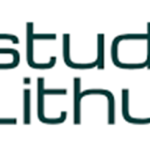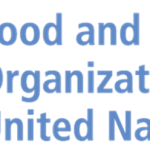Interest is rebounding after a dip, as economic uncertainty affects vacancies in tech and consulting
Demand for MBA programmes is rebounding strongly after a fallow period in 2022 and 2023, with schools reporting a resurgence in interest driven by economic uncertainty. The traditional flagship business management degree, considered by some to have passed its peak, is enjoying a revival as professionals seek shelter from a cooling labour market. According to the Graduate Management Admission Council (GMAC), total MBA applications surged by 13.2 per cent last year, reversing a 6.5 per cent drop in 2022 and a further 4.9 per cent fall in 2023.
This rebound, schools say, reflects a broader pattern often observed during uncertain times, when MBA study can be seen as a safe haven. “I think it’s definitely influenced by the softening job market,” says Donna Swinford, associate dean for student recruitment and admissions at Chicago Booth School of Business. “There’s an increase [in the number] of people coming from tech, and also consulting, who are applying.” Both sectors have recently made significant lay-offs or delayed start dates for new recruits. FT Global MBA Ranking 2025 © Getty Images

Read the ranking and report Chicago Booth’s MBA applications rose by 22 per cent from 2023 to 2024, reflecting similar gains across the elite “M7” group of US business schools. Economic downturns have long been the catalyst for growth in MBA demand. The 2008 financial crisis and the Covid-19 pandemic both drove spikes in applications. Today is no different, with business schools experiencing a renewed flood of interest. For Giovanna Pinciroli, the decision to pursue an MBA aligned with broader job market trends, though it was not directly dictated by them. The Italian participant left a role in the private equity industry to begin her MBA at Chicago Booth last year. “Generally, if you have a stable economic climate, fewer people are looking to leave their jobs. But, for me, it was an investment for the long term,” Pinciroli says. Giovanna Pinciroli left a role in private equity for an MBA at Chicago Booth © Matthew Gilson, for the FT
However, even amid lay-offs, top-tier MBA programmes continue to favour applicants who are employed. “Being unemployed can signal a red flag to elite schools,” says Esther Magna, at Stacy Blackman Consulting. But if chances for promotions and pay rises dry up in a downturn, she believes it can be the right time to apply. Ironically, while demand for MBA places surges, the job market for graduates is worsening. At Harvard Business School, for example, alumni data from the 2025 FT Global MBA Ranking shows 77 per cent of its graduating class found employment or received an offer within three months, compared with 80 per cent in 2024 and 90 per cent in 2023. This slowdown reflects a broader drop in hiring across major industries.
Nevertheless, applicants appear undeterred, betting that, by the time they graduate, economic conditions will have improved. Many professionals who opted to remain in secure roles during the post-pandemic economic boom, are now re-entering the MBA pipeline. “This is a rebound,” says Frank Bournois, dean at China Europe International Business School (Ceibs). After a lull in MBA applications following the pandemic, Ceibs has notched “double-digit” growth in the past 18 months. Much of this demand, Bournois notes, stems from China’s economic slowdown. International interest in Ceibs has grown, with the number of foreign applicants rising by 15 percentage points since 2022.
However, Bournois also notes declining North American interest, driven by geopolitical tensions between China and the US. Applicants are betting that by the time they graduate, economic conditions will have improved Globally, application trends are uneven. MBA demand is growing strongly in the US, mainland Europe and Asia, while in Canada and the UK there has been a sharp decline. Andrew Walker, GMAC’s director of research analysis and communications, attributes this to immigration crackdowns and growing competition from emerging regions such as India and China. London Business School is among the institutions grappling with these challenges.
Visa restrictions, particularly last year’s ban on most international students bringing family to the UK, have led to a steep drop in enrolments from Japan and South Korea. “The [impact of] the visa restrictions was not as bad as our worst fears, but has affected applications from some parts of the world,” confirms Graham Hastie, associate dean of degree education at LBS. Despite these regional setbacks, overall applications to LBS’s two-year MBA rose by 10 per cent last year. While applications surge, enrolment figures tell a different story. Total business masters enrolment has increased by 13 per cent over the past six years, lagging behind application growth, which rose by 48 per cent during the same period, according to AACSB, which accredits business schools.
This discrepancy points to a rise in “speculative applicants” who may lack the credentials to secure places at top schools, says Caroline Diarte Edwards, co-founder of Fortuna Admissions and former admissions director at Insead. “Sometimes, they are throwing their hat into the ring and are not the best candidates,” she says. Despite this, demand for top-tier MBAs remains robust, amid a period of bifurcation. GMAC data indicates that 65 per cent of highly ranked programmes — based on FT and US News & World Report rankings — saw application growth, compared with just 48 per cent of schools ranked outside the top 50.
“There is a flight to quality,” says Magna, with most of her clients applying to M7 group schools to maximise their return on investment. Going back to school often looks more attractive in moments folks know they are being strictly assessed in the marketplace Clare Norton, Columbia As a result, the competition for MBA places at the top end of the market is fierce. Columbia Business School in New York, an M7 institution, received nearly 7,500 applications for the 2023-24 admissions cycle, a 27 per cent increase from the previous year.
“Folks are recognising a need to pivot away from a part of the economy that may not be as stable long term,” says Clare Norton, Columbia’s senior associate dean for enrolment management. “Going back to school often looks more attractive in moments folks know they are being strictly assessed in the marketplace.” Looking ahead, experts caution that the surge may plateau in a couple of years as pent-up demand for MBA places subsides. For now, though, business schools are capitalising on the boom. Economic uncertainty is once again proving to be the MBA degree’s greatest ally.
Source: Financial Times



















